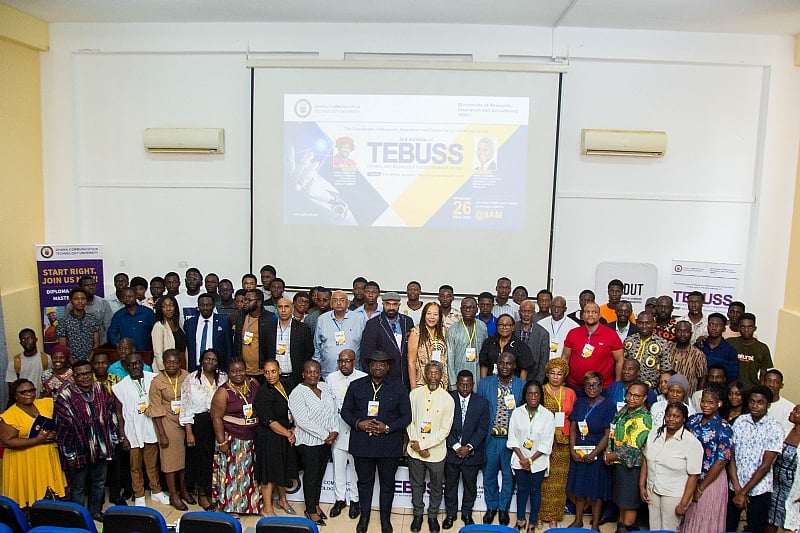Professor Fulufhelo Netswera, Executive Dean of the Faculty of Management Sciences at Durban University of Technology (DUT), has applauded Ghana Communication Technology University (GCTU) for its commitment to advancing Information and Communication Technology (ICT) as a key driver of societal transformation.
Speaking at the 3rd edition of the Technology, Business, and Society Seminar Series (TEBUSS) hosted by GCTU under the theme The Africa We Want, The Africa We Should Claim, he commended the university for recognizing the power of ICT in shaping the future.
“ICT is indeed the future of the new society, and GCTU’s emphasis on this area is highly commendable,” he said. “As we navigate the complexities of the digital age, it is imperative that we equip our students with the skills, knowledge, and competencies required to thrive in an increasingly technology-driven world.”
Professor Netswera highlighted the need to shift from a knowledge-based approach to a skills-based one, arguing that traditional education often assumes knowledge alone is enough for problem-solving. He noted that there is no direct link between knowledge and skills, stressing that a purely theoretical approach leaves students unprepared for real-world challenges.
To address this, DUT has reversed the conventional knowledge-to-skill model, focusing first on skill acquisition. He emphasized that skills-based education is critical for Africa’s development, as it fosters job creation, innovation, and economic growth. However, he pointed out that the biggest challenge is not in proposing new educational models but in implementing them effectively.

Vice-Chancellor of GCTU, Professor Emmanuel Ohene Afoakwa, reinforced these ideas, stressing the university’s mission to develop academic programs that respond to the changing needs of industry and society. He acknowledged Africa’s ongoing struggles with hunger, poverty, and educational deficits but insisted that these challenges also present opportunities for innovation.
He highlighted GCTU’s partnership with DUT, which has facilitated staff training, joint research initiatives, and the publication of ten research papers. Expressing gratitude for the collaboration, he noted that it has strengthened the university’s academic programs and opened doors for further research and capacity building.
The seminar gathered key figures from academia, industry, and government, including a 15-member delegation from DUT. The event featured keynote presentations, panel discussions, and networking opportunities, creating a space for knowledge exchange and collaboration.
Professor Afoakwa closed the event with a call for stronger partnerships, emphasizing that Africa’s future depends on educational institutions becoming hubs for solutions that drive progress.


